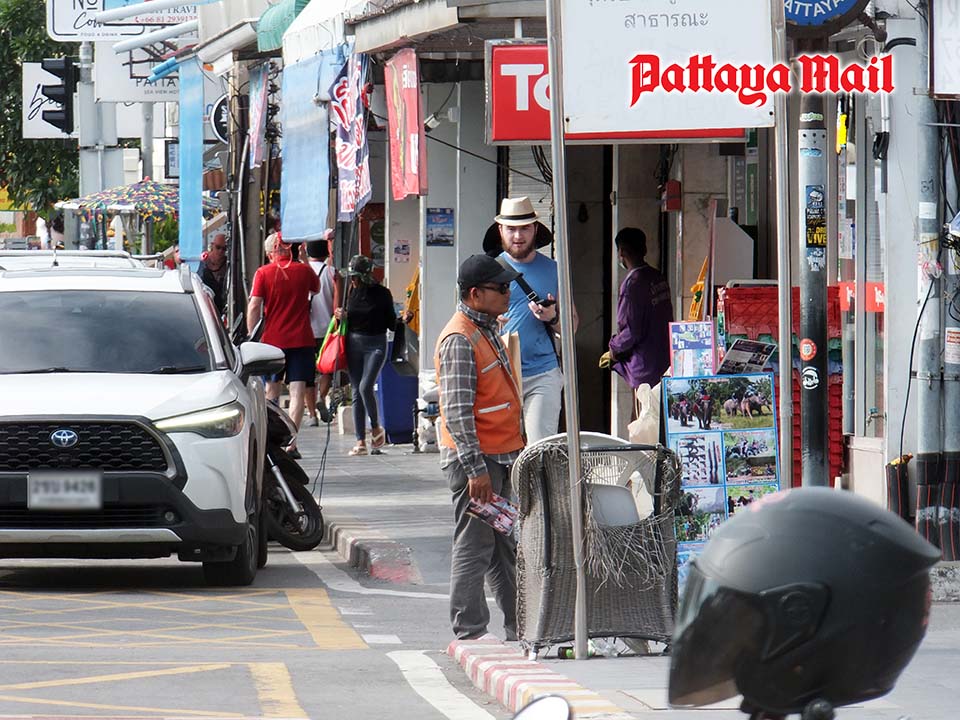As Pattaya’s streets fill with foreign riders, authorities work to ensure new helmet laws are understood and followed by all
As Pattaya’s streets buzz with foreign motorbike riders, authorities face the challenge of ensuring new helmet laws are understood—and followed—by all.
PATTAYA, Thailand – A nationwide traffic safety campaign officially launched on June 1, aimed at reducing motorcycle-related injuries and fatalities across Thailand. The new regulations, now strictly enforced under Section 122 of the Land Traffic Act, require both motorcycle drivers and passengers to wear helmets at all times while riding. Those who fail to comply will face a fine of up to 2,000 baht, and if a passenger is also caught without a helmet, the driver will receive a doubled fine.
The campaign — part of the Royal Thai Police’s “Safe Road Project” — encourages riders to treat helmet-wearing as an automatic habit the moment they start their engines. Special emphasis is being placed on high-risk roads, accident-prone zones, and areas around schools, where road violations are common. Police have been instructed to strictly enforce traffic laws and target violators to improve public discipline and road safety.
In Pattaya, a beachside city teeming with both tourists and long-term foreign residents, motorbikes are often the transport of choice. Yet many foreign riders remain unaware of or indifferent to Thai traffic laws, including helmet requirements. With the new fines in place, questions arise about whether international visitors will comply. Language barriers, cultural habits, and lax enforcement in past years have contributed to a casual attitude toward safety gear. Without multilingual awareness campaigns and strict policing, there’s a real risk that compliance among foreign riders may remain inconsistent — putting both themselves and others in danger.
Anukul Pruksanusak, deputy government spokesperson, said the government places great importance on ensuring the safety of road users and improving public understanding of road safety measures. He emphasized that the helmet is a vital piece of protective equipment that can prevent or reduce head injuries in the event of an accident.
“The government reminds the public to prioritize road safety by wearing helmets. It’s not just a legal obligation but a simple act that can save lives. This campaign is the start of reshaping how we approach road behavior, and we call on everyone to follow the law, encourage others to do so, and help monitor violations in their communities,” Anukul said.
Authorities hope this renewed focus on enforcement will help reduce Thailand’s high motorcycle-related fatality rate and promote a culture of responsibility and discipline on the roads.



